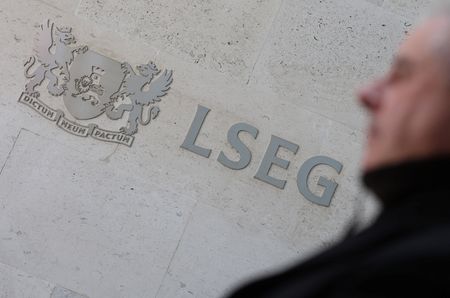By John Revill and Oliver Hirt
ZURICH (Reuters) – Nestle investors are hoping the Swiss food group can draw a line under a period of volatility and sliding shares after the company accelerated the departure of its chairman, hot on the heels of a scandal that toppled its CEO.
After the early exit of chairman Paul Bulcke, 71, former Inditex CEO Pablo Isla will take the reins on October 1, half a year ahead of schedule, challenged to revive the fortunes of the maker of KitKat chocolate and Nescafe coffee maker by revving up ales and focusing on fewer brands.
Isla, 61, is the first outsider to be named chairman at Nestle in 25 years, and could help new CEO Philipp Navratil, 49, as he looks to placate investors who had grown frustrated with tepid sales and a more than 40% share price drop since 2022.
“Isla must steer Nestle back into calm waters. Furthermore, he must work with the board to develop a new strategy to regain the confidence of capital markets,” said Ingo Speich, head of sustainability and corporate governance at German asset manager Deka Investment, which has a stake of around 0.5% in Nestle.
Speich said the company had been forced to speed things up given rising investor pressure, but hoped Isla would bring a fresh perspective.
“Pablo Isla plays clearly a central role. He has enormous experience as a CEO outside Nestle and is able to work very closely with Navratil to give Nestle a fresh start,” he said.
Nestle declined to comment on Wednesday.
TOP MANAGEMENT CHANGE SIGNALS POTENTIAL SHAKE-UP
The switch comes a fortnight after the ouster of CEO Laurent Freixe, 63, over an undisclosed relationship with a subordinate and his replacement by Navratil, a former head of Nespresso.
The rapid exit of Bulcke and Freixe, long-term Nestle insiders, signals a potential shake-up amid a tough consumer environment that has weighed on sales.
Bulcke, chairman since 2017, was CEO from 2008 to 2016, and investors said it was the right time for a change of leadership.
A Nestle source said the company hoped Isla and Navratil were now its management team for the next decade, with the pair focusing on reviving sales growth by investing more in products and brands.
“Everything will become faster, developing and launching new products, and renovating existing ones, to more marketing,” said the source. “Growth is the focus.”
Shares traded down 0.5% lower in afternoon trading in Zurich, after opening a touch higher.
The management overhaul is the most dramatic in decades for the world’s largest consumer goods company that makes infant formula, confectionary, frozen pizza and Purina pet food, and is an investor staple in Switzerland and beyond.
Bulcke’s decision to step aside now rather than in April 2026, shortly after Freixe’s departure, clears the way for Navratil and Isla to take full charge.
There had been mounting investor pressure for a complete leadership overhaul.
“The change at the top of the board shows that Nestle has recognised that it needs new impetus and new faces,” said Reto Loetscher, an analyst at Luzerner Kantonalbank.
“Nestle must undertake a fundamental restructuring. Size alone will no longer be a guarantee of success.”
‘GENERAL STORE’ NESTLE NEEDS TO REVIEW ITS BRANDS
Both Isla and Navratil are committed to an organic growth strategy that will “leverage efficiencies” to invest behind Nestle’s strong portfolio and brands, Nestle said on Tuesday.
Kai Lehmann, portfolio manager at Flossbach von Storch – another Nestle investor – cited Isla’s good track record at Inditex.
“We hope that he can steer the company back into calmer waters,” he said.
Navratil had been successful at Nespresso, but was relatively inexperienced, having only joined the Nestle executive board in January, Lehmann said.
He said it was important Nestle examined its portfolio and reduce its number of brands.
“At present, Nestlé is a general store par excellence. The question is: in which areas is there growth potential beyond pure population growth?” Lehmann said.
“Ultimately, they wanted to serve everything that ends up on the plate. That is not catchy enough for the market.”
(Reporting by John Revill and Oliver Hirt, Editing by Rachel More, Adam Jourdan, Jane Merriman and Bernadette Baum)











